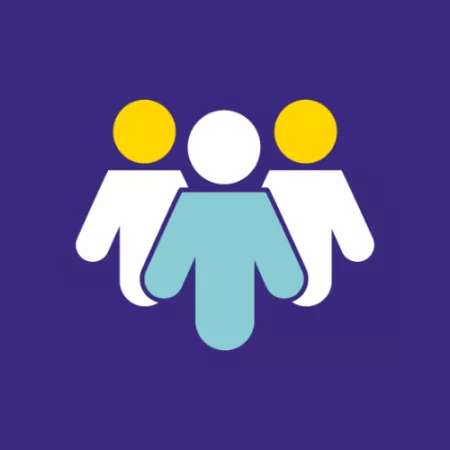In each part of the UK there are different systems in place to support children with special educational needs.
This page covers special educational needs and disabilities (SEND) support in England.
How can my child get SEND support?
In England, SEND support is available to all children and young people, aged 0–25, assessed to need extra help because of a learning difficulty or disability, as long as they are in education or training.
There are three ways to get SEND support:
1. In educational settings:
- Early years – including nurseries and preschools
- In school, aged 5–15
- In education or training, aged 16 or over
2. Through support in your local area, including The Local Offer – from your local authority
3. Through an Education, Health and Care Plan
These are covered in detail below.
Assessment of Behaviour and Learning in Epilepsy (ABLE) tool
It’s vital to identify the special educational needs of children with epilepsy as early as possible.
For this reason, Young Epilepsy has developed the Assessment of Behaviour and Learning in Epilepsy (ABLE) tool.
The ABLE tool can help parents, carers and teachers to make the right decisions for:
- special educational needs coordinator (SENCO) level support in school
- Education, Health and Care assessments that may lead to an EHCP
In some cases, children with additional educational needs may also qualify for extra support during exams.
Below you will find information about SEND support in the different educational settings.
Early years settings include nurseries, preschools, registered childminders, holiday play schemes and childcare at home.
If you think your child needs additional educational support, you can speak to the special educational needs coordinator (SENCO) in your child’s nursery or preschool.
You can also speak to your doctor, health adviser or other healthcare professionals involved in your child’s care.
If your child doesn’t go to a nursery or preschool, or a registered childminder, you can also get in touch with your local authority.
Your child may need to be assessed to see if they need an EHCP.
If your child needs SEND support, they can get it at:
- A mainstream school
- A specialist school
You have a legal right to send your child to a mainstream school.
By law, mainstream schools must do everything possible to make sure children with SEND get the support they need.
Your local authority can only refuse your child admission to mainstream education and insist they go to a specialist school if:
- Your child attending a mainstream school would not meet their needs, not represent good value for money or would impact negatively on the education of others and there are no reasonable steps the LA could take to avoid this.
For more information The Department of Education SEND guide for parents and carers
If a specialist school is best for your child, they will almost certainly need an EHCP.
Children with an EHCP do not go through the usual admissions process – handled by your local authority – to go to a specialist school.
Instead, as part of their EHCP, you can name the school you want your child to go to.
In education or training, aged 16 or over
Under the SEND system, your child becomes a young person on the last Friday in June after they turn 16.
They can leave school at the end of the school year they turn 16. But, legally, all young people must be in education or training until 18.
Your child’s education and training options once they turn 16 are:
Your child can:
- Stay in school – moving to the sixth form of their existing mainstream or specialist school, or moving to a sixth form in another school
- Study for academic or vocational qualifications, such as Business and Technology Education Council qualifications (BTECs) and A levels
Their SEND support will continue if they need it.
Mainstream further education colleges offer a wide range of courses, including GCSEs, A levels and more.
Your child’s SEND support should continue in much the same way as it did at school. But you should ask about their SEND support when your child is applying.
Once your child has chosen their further education college, their school should work with the college to make sure the move from school to college goes smoothly.
Any extra help they are going to get should be set out in a SEND plan.
You can find out about mainstream further education colleges from your child’s school, your local authority’s website and the National Careers Service.
Specialist further education colleges only provide education for young people who need SEND support.
Your child will need an EHCP to go to a specialist further education college.
You can ask your local authority to name the college you want your child to go to in their EHCP.
Your child’s education after the age of 16 can include a mixture of college-based learning and other activities such as work experience, volunteering, self-help, independent travel training and communication skills.
They may be able to get some of this funded from your local authority’s adult social care budget.
Find out more about when your local authority might pay towards social care.
Apprenticeships combine study for qualifications with paid on-the-job training.
They are open to young people over 16 with or without an EHCP.
Find out more about apprenticeships.
Traineeships are for young people aged 16–24, with or without an EHCP who have qualifications below level 3.
You can find out more from your local further education college and the National Careers Service.
A supported internship is a workplace training and study programme open to young people aged 16–24 with an EHCP.
The supported intern follows a personalised programme that includes on-the-job training and support from a work coach.
Your child’s EHCP ends when they go into higher education, for example, a university course.
But they may be able to get support through the Disabled Students’ Allowance.
Also, under the Equality Act 2010, universities must make reasonable adjustments for students with disabilities, including flexible seminar times, access to specialist computer software and support for study skills.
The Local Offer
Every local authority must have a Local Offer for children and young people aged 0–25 with SEND. It must set out on its website its Local Offer, which should include:
- Education, health and social care services in the local area for children, young people and families who have SEND or disabilities
- Information about services provided outside the local area that local people are likely to use
Types of support can include short breaks, helping young people to live independently, and support to find work and accommodation.
Education, Health and Care Plan
If your child needs more help than their educational setting can offer, they may be able to get more help from your local authority.
You or your child’s school can ask your local authority to carry out an education, health and care needs assessment to see if your child needs an Education, Health and Care Plan (EHCP).
Your child can also ask for an assessment when they’re over 16.
Find out about how to request an education, health and care needs assessment in Further information and support below.
An EHCP sets out your child’s needs and the support the local authority will put in place for them.
All professionals who support your child work together to shape this plan. It should be reviewed at least annually. It should be up to date and current, so if something changes an early review should be requested.
If your child does get an EHCP, it should also take into account that, even after medication is discontinued, and your child is completely seizure free, underlying brain conditions may persist and continue to affect learning.
Further information and support
To find out more about getting the right SEND support for your child, click on the links below:
- GOV.UK – SEND: guide for parents and carers
- GOV.UK – SEND support: easy-read guide for parents
- GOV.UK – SEND code of practice: 0 to 25 years
- GOV.UK – Requesting an education, health and care needs assessment
- Independent Provider of Special Education Advice (IPSEA) – How should your nursery, school or college help?
- IPSEA – Get support
- Council for Disabled Children – Local Offer guide
- Council for Disabled Children – Find your local Information, Advice and Support (IAS) services
- Council for Disabled Children – Early Years SEND Partnership Programme






